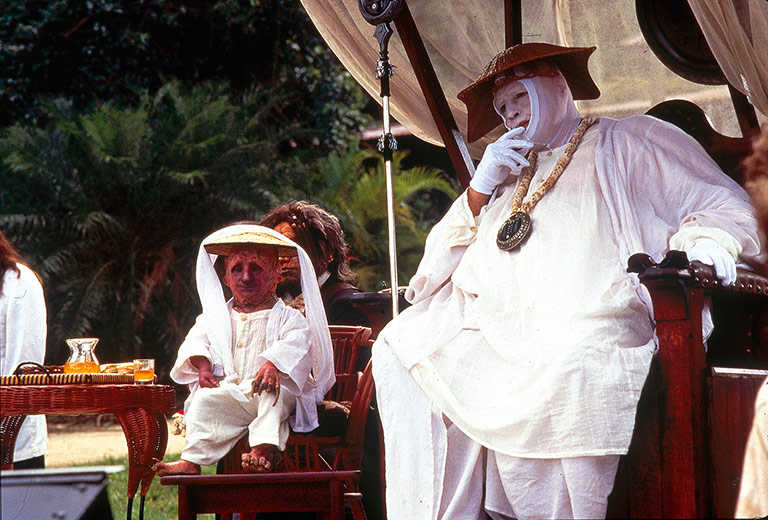

Prendick himself does so, after a while finding himself considering these once-alien creatures to be familiar and almost passably human in form and nature.

Moreaus actions are horrifically cruelmuch page space is given to the physical anguish to which his creatures are subjected, and the same again to the endless Pavlovian conditioning required to keep them on the path to something approaching humanityand Wells uses these actions as a way of highlighting the incremental, long-term requirements of evolution something that is further underlined when the creatures regress when their humanity is not tended to as required.īut its not just Moreaus creatures that regress. Moreaus creatures have been carefully manipulated, through both physical and social conditioning, to exhibit human characteristics to as far a degree as possible, but they remain eerily mimetic of their intended form rather than being able to truly pass. Its a position that reflects the blazing light of naturalist Charles Darwin, whose hypotheses were at the time were gaining prominence (albeit a then highly contentious prominence, as we can see in the postulations that arise from Wellss novel).

Moreau remains an odd, ambiguous figure who skulks around the periphery of Prendicks consciousness until Prendick begins to connect the oddly malformed inhabitants with the actions and ideology of the doctor.'Moreau, of course, has been seeking to imbue animals of all types with both human form and intelligence, and has, to varying degrees succeeded. On this island Prendick meets the mysterious Moreau, a disbarred surgeon of superlative genius but rather less outstanding moral capacity. But as has been the case with all of Wellss work, Im rather impressed by the longevity and continued relevance of this work.'In The Island of Doctor Moreau Wells sinks his analytical scalpel deep into all things social, and the result is a novel that is as chilling as it is thought-provoking.Įdward Prendick is stranded on an island in the middle of nowhere, an event that necessarily severs him from the norms and confines of civilised society, and which sets up the shocking dichotomy between savagery and humanity with which Wells is to bombard us for the next few hundred pages. Though I have awful memories of the film adaptation of this novel (oh, Marlon, what happened to you?), I havent actually enjoyed this novel in print form before. Ah, my third HG Wells in as many months, and the third book in which Wells gets his didactic on.


 0 kommentar(er)
0 kommentar(er)
